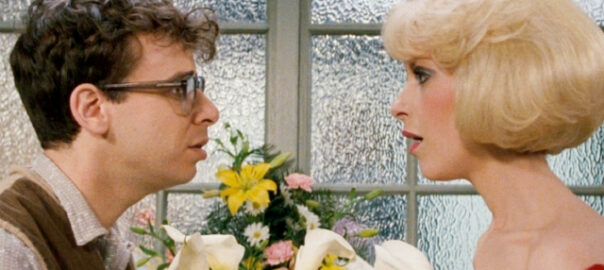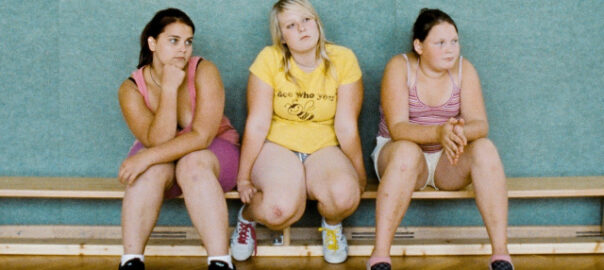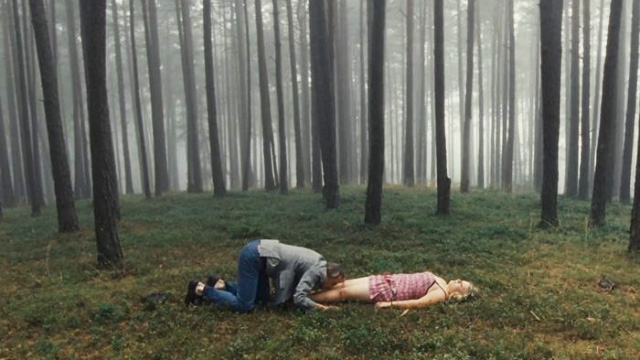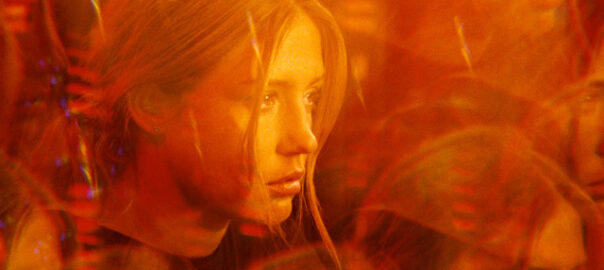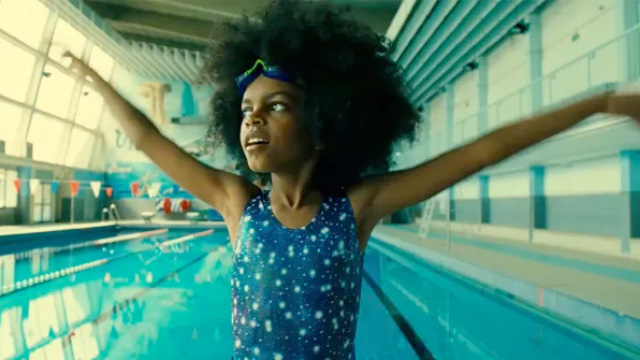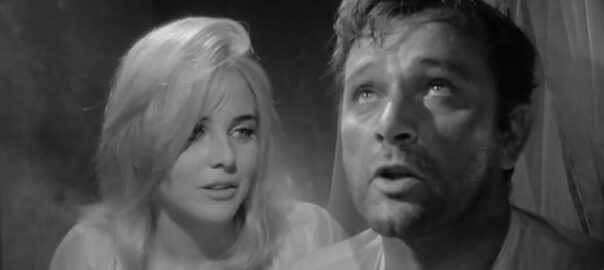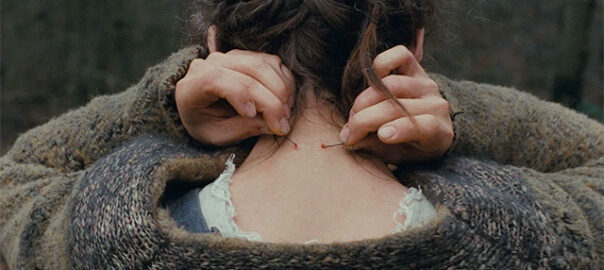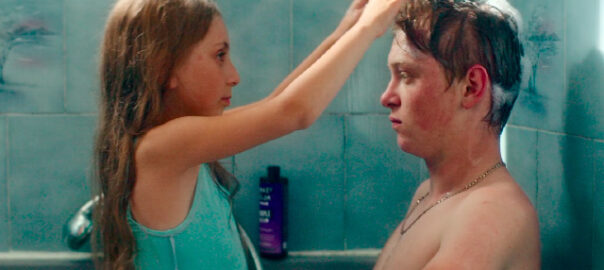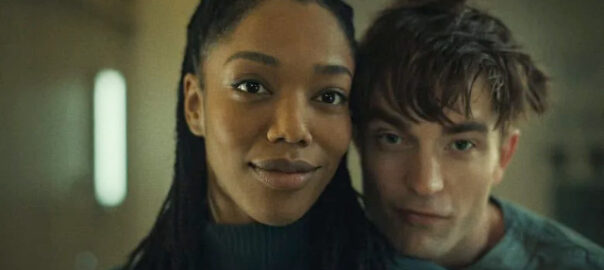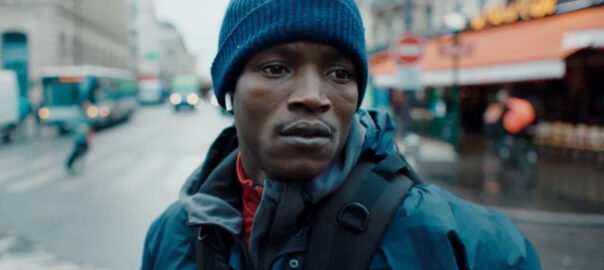Color / English Language / MPA rating: R / Runtime: 137 min
You may not have noticed this unless you’ve watched his films closely, but Bong Joon Ho (“Barking Dogs Never Bite,” and some other stuff after that) has a few quibbles with capitalism. It’s true! I know it can be hard to focus on subtext when the former Captain America is lamenting the fact that “babies taste best,” but watch “Snowpiercer” for a second time and you might just be able to tease out a well-sheathed critique of the social order in its story about an economically segregated train where the people in the lower classes are forced to eat each other alive while their rich overlords in the front cars are free to enjoy the eternal rewards of the locomotive’s self-perpetuating engine.
Ditto “Okja,” which hides a damning rebuke of corporate greed behind a winsome fable about a girl and her pet superpig, “The Host,” whose monster feasts on the industrialized world’s collective disregard for its most vulnerable communities, and “Memories of Murder,” whose serial killer is empowered by the profound sense of helplessness that always trickles down to working people when things are rotten at the top. The Oscar-winning “Parasite” is really the only exception to the rule (just kidding).
You get the idea: Bong has a very particular set of interests, and subtlety isn’t one of them — even if nuance is one of his signature gifts. But that approach has always been more of a feature than a bug. In fact, I’d argue that the singular appeal of Bong’s films is rooted in the seemingly infinite spectrum of shiv-like slapstick they’re able to mine from the obviousness of the same basic subject; I’d argue that his films use the screaming moral iniquities of capitalism as a kind of centrifugal force that allows them to spin in several directions at once — and slush any number of different tones into a madcap genre all their own — without ever flying off the handle. And most of all I’d argue that “Mickey 17,” the best and most cohesive of Bong’s English-language films, offers such exciting proof of Bong’s genius precisely because it feels like such a clear amalgamation of his previous two, both of which are even goofier and more fumbling than his Korean-made work.
That trend continues and then some in his biggest swing to date, a wry, delightful, and resoundingly sweet mega-budget space adventure that doesn’t seem to be aware that it was made by a major American studio. Indeed, “Mickey 17” is so similar to “Snowpiercer” and “Okja” in both tone and theme alike that Warner Bros. can’t possibly try to act like they didn’t know what they were paying for.
Additively adapted from Edward Ashton’s novel “Mickey 7,” Bong’s latest film plays like a mega-mix of the director’s most familiar tropes. Like “Snowpiercer,” it’s set in a bleak-as-hell future where the Earth has become an unlivable ruin, and some portion of the survivors have squirreled themselves away inside of a massive vehicle that appears as if it might fall apart at any minute. In this case, that vehicle is a government spaceship rather than a privately owned train, it contains a small fraction of the world’s population rather than the whole thing, and it’s traveling to investigate the ice planet Niflheim — a potential site for human relocation — rather than just going around in circles, but the socioeconomic conditions aboard the vessel are all too familiar. If anything, they’re actually even more stratified than they were in Ed Harris’ wildly uneven design.
At the top of the ladder is a failed politician named Kenneth Marshall (Mark Ruffalo, his natural seriousness proving fertile ground for satire), who sees the expedition as a chance to create his own little fiefdom in the stars, and dreams of colonizing a “pure white planet full of super people.” At the bottom is the poor sap once known as Mickey Barnes (Robert Pattinson), a servile and self-negating orphan who follows his childhood bully Timo (Steven Yeun) around like a lost puppy, and didn’t think twice when his BFF suggested they take out a loan from the scariest gangster on Earth in order to start their own business selling macarons — they’re the new hamburgers!
Not so much, it turns out. Desperate for a way off-world, our boys hitched a ride on Kenneth’s ship. Timo took a job working the furnace, but Mickey thinks so little of himself that he signed up to be the ship’s token “Expendable,” a human guinea pig whose memories and biodata are saved on a hard drive so that his body can be endlessly reprinted every time he bites the dust. Need someone to go on a dangerous spacewalk to fix a busted part? Send a Mickey. Need someone to see if the Niflheim air continues an Ebola-like virus? Send a Mickey. At the risk of overstating the pleasure that Bong takes in killing his lead actor over and over again, it’s as if the director watched the last act of “The Substance” and thought to himself: “What if a movie started with its star barfing up all the blood in their body?”
And yet, much as that mordantly amusing scenario might lend itself to the stuff of high-key satire, the fact remains that Bong has never found any joy in the suffering of his strivers. Even here, in what would seem like his silliest movie if not for the cock-eyed sincerity of its construction, Bong’s natural inclination is to emphasize the downbeats; to frame Mickey’s dehumanizing misery in the context of his absent self-worth rather than as the result of a practical circumstance.
It’s a fine distinction, but one that makes all the difference to a movie in which human printing is simultaneously both a path to god-like immortality and also a punishment reserved for the most worthless members of society. You might think that Mickey’s invaluable role in the expedition’s success would establish him as a rockstar aboard Kenneth’s spaceship, but the reality is that having such a specific function — let alone one so dependent on his ultimate disposability — inspires the rest of the ship to think as little of Mickey as he thinks of himself. “Almost every single one of you will be remembered throughout history,” Kenneth blithely declares to his crew, and it’s clear who he’s leaving out of that legacy.
It’s one of the strange quirks of capitalism that people with clearly defined jobs are often valued so much less than those whose greatest task is to wield the illusion of their own importance, and yet making something into a job is enough to permit all manner of violence. Mickey’s job is to die, and because it’s his job, nobody thinks twice about what it means to let him do it every day. Seldom has Bong more succinctly or amusingly illustrated the dehumanizing horrors of that system than he does in the scenes where a new Mickey gets spat out of the DNA printer. The first time it happens, several crew members gather around to cradle and console his naked body. Cut to: a few printings later, when Mickey 10 or 11 is left to flop onto the floor while the only technician in the room is busy playing games on his tablet.
Then again, perhaps Mickey is right to have such little regard for himself. Maybe he really is just a piece of “bad meat.” The aliens he encounters on Niflheim in the movie’s opening scene would seem to confirm that suspicion, as the brilliant “Creepers” — as Kenneth dubs the indigenous species of freaky giant isopods who look like they were thawed out of Nausicaä’s worst nightmares — refuse to eat him even after Mickey falls into one of their nests.
The people aboard the spaceship certainly assumed they would, which is why they don’t even bother to retrieve Mickey 17’s body before they print out the next copy. Big mistake. For one thing, the powers that be don’t take kindly to the idea of multiples. For another, something about seeing another version of himself triggers Mickey’s long-dormant survival instinct; if one of the two Mickeys doesn’t sacrifice himself for the greater good, both of them are going to be put out of commission on a permanent basis.
If the marvelously detailed creatures — or Kenneth’s plans to exterminate them — don’t inspire fond memories of “Okja,” Bong’s renewed fascination with twinning certainly will. Working from his own script, the director thrills in how readily Mickeys 17 and 18 identify each other as an other, and there’s a wonderfully matter-of-fact quality to the sci-fi mishegoss that puts the two Pattinson’s into direct conflict.
Always willing to subvert his Tumblr-core past by making the weirdest choices he possibly can, Pattinson gives two of the best performances of his life here. The meek and constricted Mickey 17 is immediately endearing even though he talks like someone has their hands gripped around his throat, while the comparatively ruthless Mickey 18 feels like a direct continuation of Pattinson’s emo Bruce Wayne, down to the glowering patch of hair that falls over his forehead. The movie wouldn’t work if each of them didn’t feel like their own distinct people, but there’s never any risk of that, even if Mickey 18’s character arc skips over a few key stops in Bong’s rush to set the table for this story’s unexpectedly emotional grand finale.
The climax is the only large-scale sequence in a film whose unerring intimacy otherwise belies its interstellar mass, and the omissions from Mickey 18’s inner journey are all the more striking in the context of Bong’s emphasis on minute character detail over Hollywood-funded spectacle. Despite the size of its budget — whatever the actual number — and the six years we spent waiting to see it, “Mickey 17” is really just a lovable little story about a bunch of silly losers who are given enough distance from the rest of our species to take new stock of their own humanity.
It’s only natural that the film should thrive on the strength of its characters. Naomi Ackie is wonderful as Mickey 17’s girlfriend Nasha, a hot-blooded soldier who recognizes Mickey’s bravery for what it is — and starts to realize that she’s lucked into the world’s strangest “Challengers” situation. “This Is England” actor Thomas Turgoose brings layers upon layers of lived-in texture to the spaceship’s crew just by virtue of showing up, his “another day in the mines”-like energy the perfect complement to the dinginess of Fiona Crombie’s production design, which feels sort of like “Alien³” with a beating heart.
Most pivotally of all, Ruffalo threads the needle between unfeeling realness and cartoonish evil as a wannabe despot who’s fumblingly out of his depth, and wouldn’t know how to finish a sentence if not for the help of his sauce-obsessed wife (Toni Collette as Ylfa, who only seems to be under-cooked because of how patiently Bong waits for the right moment to serve her up on a silver platter). In a movie that spends most of its time confined to the disorienting guts of a derelict spaceship, tracking Kenneth’s de-evolution from Kennedy wannabe to a used car salesman version of Colonel Kurtz is often the only moral compass we have to find our way towards a better tomorrow.
For all the novelty of its characters and the uniqueness of their circumstances, “Mickey 17” is such an obvious composite of “Okja” and “Snowpiercer” that it occasionally threatens to feel as if Bong is repeating himself. But this film is such a vital addition to his body of work — as different from those previous efforts as the various Mickeys are from each other, despite their outward similarities — because it invites Bong to reframe socioeconomic inequality as an existential crisis with material consequences rather than as a material crisis with existential consequences.
In “Mickey 17,” the inability to feel another’s pain is positioned as the natural condition of a for-profit system, and human printing the final step towards eliminating a worker’s self-worth. “Have a nice death, see ya tomorrow.” This isn’t just another great Bong Joon Ho movie about how much he hates capitalism (though it definitely is that too), it’s the first Bong Joon Ho movie about how much he loves people.
He loves that they’re so foolish and eccentric; he loves that they’ll never make for perfect little drones that just do as they’re told. And he finds it so funny and sad and perversely fucked up that people keep inventing new ways to treat each other as if they aren’t people at all, as if humanity were hardwired towards its own erasure. Even here, in a story whose hero is technically immortal, everyone is obsessed with asking him what dying is like, but the truth is that they already know. By the end of this warm, poignant, and indivisibly human film, those same crew members might find themselves more curious to know what it’s like to be alive. At the very least, this is the rare Hollywood movie that feels like it’s capable of showing them, even if it has to kill its hero 17 times in order to figure out how.
Review by David Ehrlich, for IndieWire



